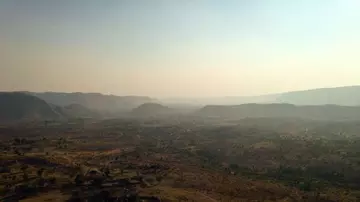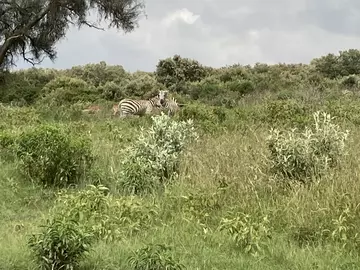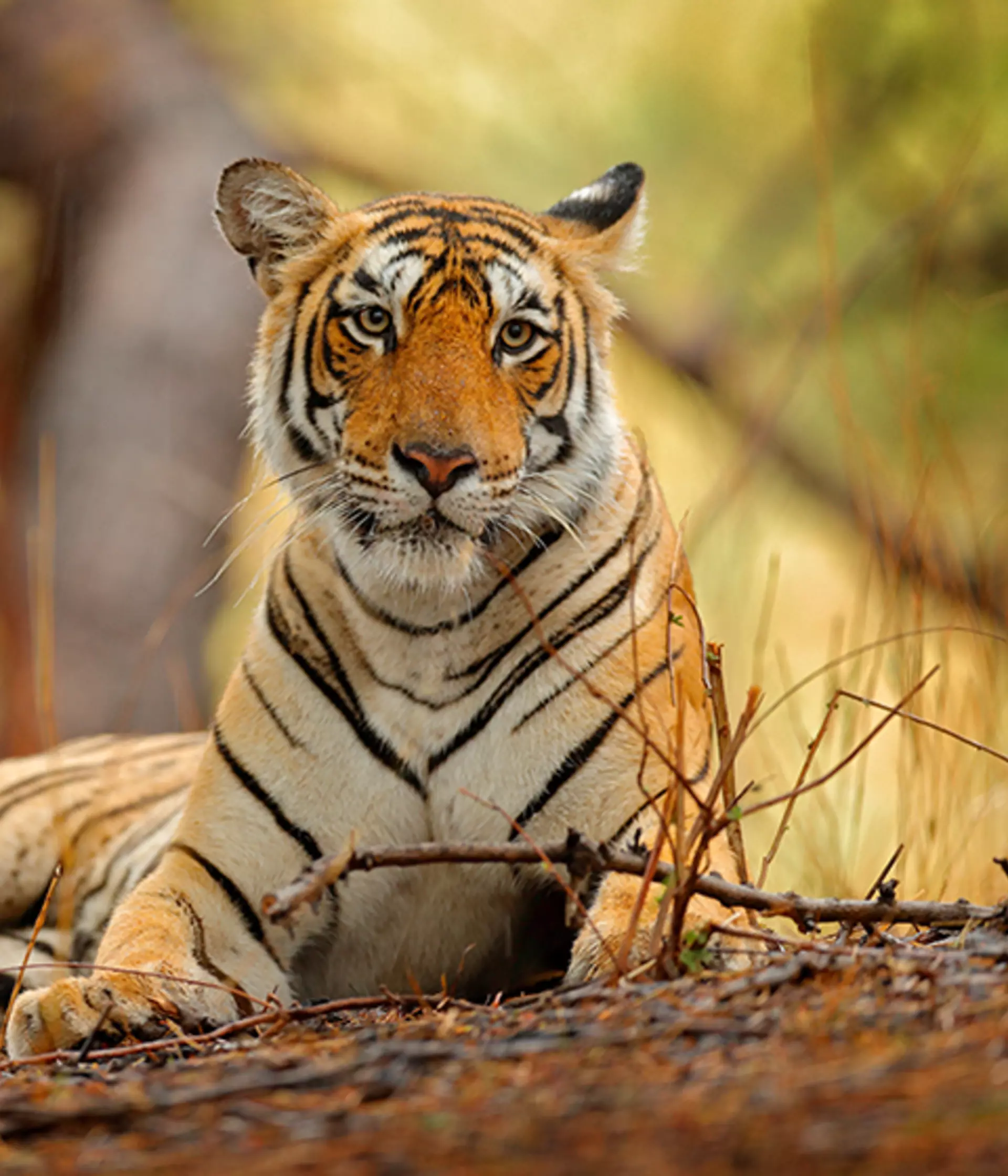
Dr Tony Sainsbury
Senior Lecturer Wild Animal Health
The Zoological Society of London (ZSL), The Wildlife Institute of India (WII), Kenyan Wildlife Service (KWS), WRTI (Wildlife Research and Training Institute, Kenya), University of Melbourne (UoM), the Royal Veterinary College (RVC) and The University of Edinburgh (UoE), have been motivated to run this course in recognition of the need to conserve globally important biodiversity and enormous natural values in South Asia, East Africa and other biodiverse areas, which are nevertheless a hotspot for wildlife diseases and conflict.
These wildlife diseases are relatively unstudied and unchecked, and ZSL, Toronto Zoo, WII, KWS, WRTI, RVC, UoM and UoE with the support of the Thriplow Trust and Wildlife Vets International, recognise an important need for greater expertise in, and greater numbers of, wildlife health professionals to tackle them.
Such wildlife health professionals are needed to undertake interventions in the health, welfare and conservation of wild animals, to investigate emerging infectious diseases and to ensure human well-being.
Therefore, a field course in interventions in wildlife health was created as an integral component of the MVetSci Conservation Medicine to provide, particularly South Asian and East African veterinarians alongside candidates from other biodiverse areas, with an important practical element when they enrol for the online programme.
"I'm going to go back more focused and motivated to focus on research in my field so I can contribute to the scientific community." Luca, Wildilfe Vet, Easten Cape Province
Optional year 2 (Diploma) course: Interventions in Wild Animal Health
Course content
The Interventions Course will provide practical knowledge to complement the theoretical understanding gained from other courses of the online Conservation Medicine Cert/Dip MVetSci programme.
Interventions are required to address human-wildlife conflict issues, to carry out effective metapopulation management through translocation, to reduce the risk from disease in reintroduction and translocation programmes, to carry out investigations in disease outbreaks in free-living wildlife and to understand the role of disease in the decline of species.
Tuition will be carried out in the field to develop skills in:
- human-wildlife conflict management
- disease risk analysis
- translocation techniques
- disease outbreak investigation
- monitoring of the health of declining species
It will also include techniques for:
- field monitoring of wildlife (using a range of techniques including animal tracks and signs, dung/pellet identification and quantification, census techniques, camera trapping, and radio telemetry)
- biological management
- visual health monitoring of free-living animals
- best practice in wild animal anaesthesia techniques
- demonstration and hands-on practice
- clinical examination in the field
- sampling techniques for infectious disease screening
- pathological examination in the field
- scanning disease surveillance scenarios
Learning outcomes
- To gain a critical awareness of the effects of interventions at the human-wildlife interface.
- To develop a systematic understanding of the planning of, and field methods in, wildlife monitoring, biological management, and disease outbreak investigation.
- To gain a comprehensive understanding including new insights into disease risk management in translocation programmes.
- To gain a critical awareness of field methods to investigate the role of disease in the decline of species.
- A comprehensive understanding of ex-situ medicine and management in the context of field interventions.
This three-week, 20 credit course covers the following topics and modules:
- Animal Population Monitoring
- Wildlife Rehabilitation
- Wildlife Health and Field Disease Investigation
- Wild Animal Restraint and Anaesthesia
- Wildlife Crime and Forensic Investigation
Joining you on the field course are highly experienced wildlife veterinarians and ecologists from The Wildlife Institute of India, Kenyan Wildlife Service, Wildlife Research and Training Initiative, ZSL, Toronto Zoo, RVC, University of Melbourne and The University of Edinburgh:
University of Edinburgh
Professor Anna Meredith - Professor of Zoological and Conservation Medicine
Dr Neil Anderson – Programme Co-ordinator and Lecturer
University of Melbourne
Dr Lee Skerratt - Associate Professor
RVC
Dr Stuart Patterson - Senior Lecturer in Wild Animal Health
Professor Richard Kock - Lecturer in Wildlife Health and Emerging Disease
ZSL
Dr Tony Sainsbury - Senior Lecturer, Institute of Zoology, ZSL
Dr Rajan Amin - Senior Fellow, Conservation Programmes, ZSL
Dr Amanda Guthrie - Head of Wildlife Health Services, ZSL
Toronto Zoo
Dr Nic Masters - Director of Wildlife Health
Wildlife Institute of India
Kenyan Wildlife Service
Dr Isaac Lekolool - Senior Veterinary Officer
Wildlife Research and Training Institute, Kenya
The 3 week course is currently run at two sites: Sariska Tiger Reserve, India and the Wildlife Research & Training Institute, Lake Naivasha and Hell's Gate National Park, Kenya
Sariska Tiger Reserve, an area 866km2 in size, is located in Rajasthan. The Park was declared a wildlife reserve in 1955 and then a tiger reserve in 1978.

Sariska is part of India's project tiger and in recent years carried out a tiger relocation scheme due to the decimation of tiger numbers in the park, making it an excellent base to learn about conservation management.
The Park also benefits from a wide range of ungulate, avian and predator species which allow a wide range of field techniques and opportunities for observations to be made during the course. You will also have the opportunity to witness human-wildlife interactions first hand, due to the many villages and temples located within the park.
Wildlife Research & Training Institute
Located in Naivasha, Kenya, the Wildlife Research Training Institute Campus will be host to several of our lectures and practical work for the 2025 course. The Wildlife Research and Training Institute (WRTI) was established with the understanding that a greater focus needs to be placed on providing reliable scientific information on emerging wildlife conservation and management challenges.

Hell's Gate National Park
Named for the intense geothermal activity within its boundaries, the Hell's Gate National Park is a remarkable quarter of the Great Rift Valley and one of our main sites for field based practical content delivery in 2025. Spectacular scenery including the towering cliffs, water-gouged gorges, stark rock towers, scrub clad volcanoes and belching plumes of geothermal steam make it one of the most atmospheric Parks in Africa. Hell’s Gate is an ideal venue for a day trip from Nairobi where, in addition to the bio-diversity that includes raptors, visitors can enjoy mountain biking, rock climbing and a natural spa.
"The most enjoyable part was meeting other students and teachers and interacting with them." - Barbara, Institute of Veterinary Bacteriology, University of Zurich
"I’m going to go back more focused and motivated to focus on research in my field so I can contribute to the scientific community." - Luca, Wildilfe Vet, Easten Cape Province
"The course has brought me closer to evidence based approaches." - Naveen, Deputy Director, Corbett Foundation, Kaziranga
If you are interested in applying for the MVetSci Conservation Medicine at University of Edinburgh please visit the course webpage.
If you are interested in attending the Interventions in Wild Animal Health field course please use the forms found under the contact tab on the www.iwah.org website.
The course runs in February-March of each year and you will need to register your interest by the October before to be considered for a place.
Details of upcoming course dates can be found on the IWAH webpage. Priority for the Interventions Course in Wild Animal Health will be given to South Asian and East African students.
